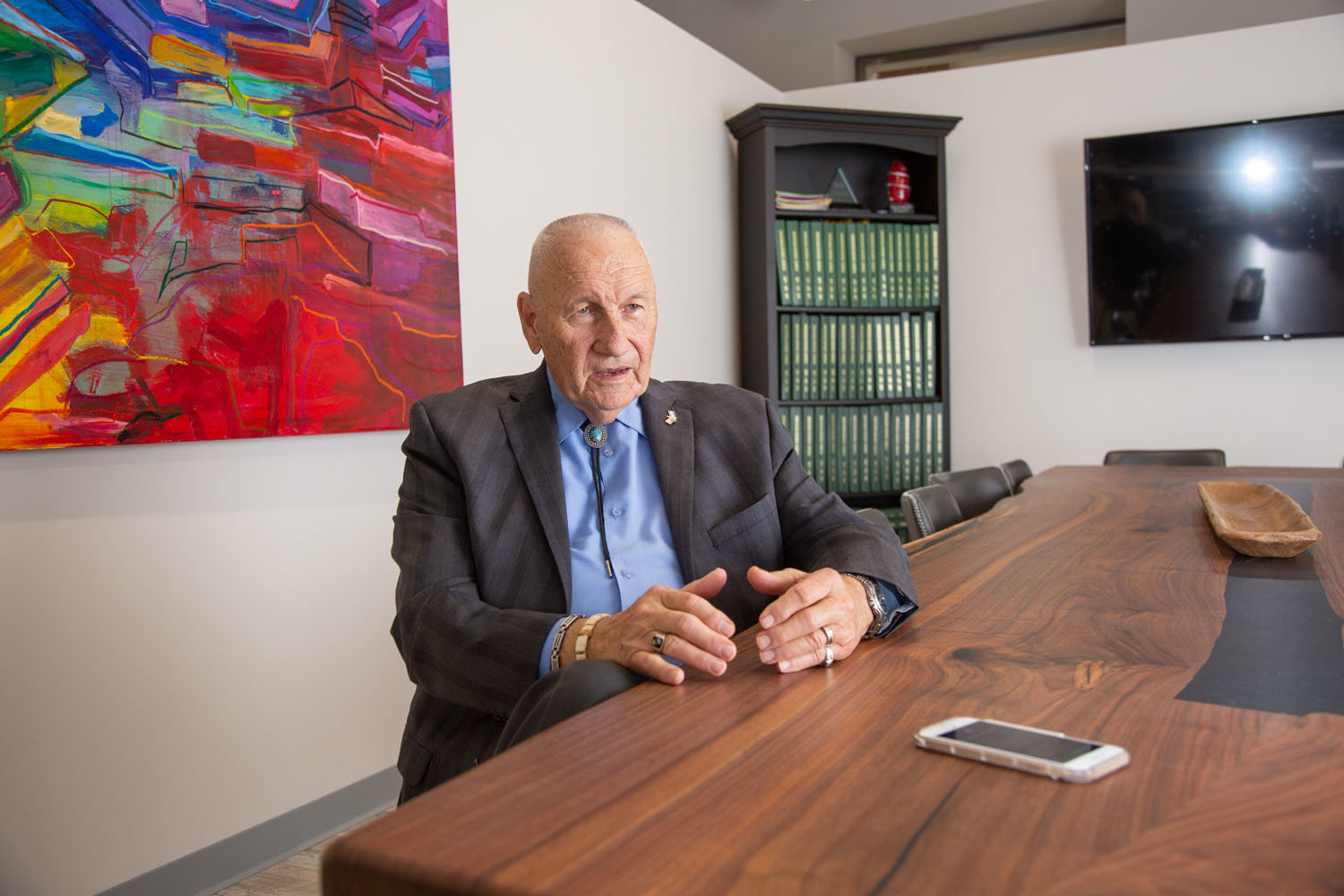YOUR BUSINESS AUTHORITY
Springfield, MO
YOUR BUSINESS AUTHORITY
Springfield, MO

With 61 years in public health and public service, Harold Bengsch has led Greene County through many crises. Today, it's through his role in the county commission, but he previously led the Springfield-Greene County Health Department for two decades.
He points to collaboration between government entities, health systems and the business community for successfully navigating previous natural and health disasters.
His first major crisis was in 1973, as a fire erupted at a former quarry near National Avenue and East Trafficway. A body was found in a nearby building, and carbon monoxide poisoning was ruled as the cause of death. Bengsch says he worked with the business community to close nearby stores, and the health systems to track related respiratory illnesses.
In the early 1980s, HIV/AIDS hit the region hard. He says the community rallied to create a new nonprofit: AIDS Project of the Ozarks.
After the turn of the century, the region was hit with the 2007 ice storm and the 2009 swine flu pandemic.
"Our hospitals at one point were virtually out of any rooms to put people in and the breathing equipment for intensive care, they were running out," he says of 2009. "That one really took us to the ropes."
What lessons from your career in public health can help the government and business response to the COVID-19 pandemic?
When you're dealing with a crisis-type issue, there's going to be rumors flying thick and fast. It's very difficult for the average individual who is not directly involved to separate the fact from fiction and getting the correct information to the public in a believable manner is critical, as quick as you can do it. Then keeping that flow of information going because the minute you slack off, the false information comes on. Second thing, you are going to have hoarding. Helping people understand as a lesson learned is that you always need to be prepared for a crisis - you need about a two-week supply of essentials that you need on hand. We see this when a big snowstorm is predicted for this area. Once the crisis is over, it's good to do a hot wash, as we call it, on what took place, what did we do right? What could we have done better? What did we do wrong? Sometimes those things are beyond your control.
Some are questioning the response to the COVID-19 crisis as too strong of a reaction, and others say it's not enough. The changes being made are altering the way businesses operate across the city. How do you properly handle reactions to a public health crisis?
For public health, that is probably one of the chief problems they suffer from, and it goes back to an old mathematical problem. Show me how you prove a negative. You can't do it. We know what we've got coming at us could be thousands of deaths if we do not do the right thing. It's already thousands of deaths worldwide, I'm talking about here in Missouri and bearing on this community. If the things that we're doing work, and I'm sure they're going to, that will not happen. But how do we prove what we did caused it not to happen? You can't. Public health is essentially prevention in nature. No. 1, you let the science drive your decisions. It doesn't mean you don't have compassion. It doesn't mean that you don't listen to everything. Try and implement whatever that is in a manner that is acceptable to people. Today, we dropped one that is heavy, and that is no congregants of more than 10 people.
What's the role of the business community?
If you're doing a personal service, that's hard to do anything about that. If you're going to stay open as a business, and we understand that, but if it's activities that are not direct from person to person but it's critical to the business, consider how many of those functions can be done from home. I know we're doing that ourselves. All of the schools in Greene County have decided not to come back from the spring break like they would have. Our food services establishments, some of them are going to takeout only. Let me tell you something about Springfield and Greene County: I know of no other community that works in a collaborative relationship with other entities on a common problem than this community.
Excerpts from a March 17 interview by Features Editor Christine Temple, ctemple@sbj.net.
A franchise store of a Branson West-based quilting business made its Queen City debut; Grateful Vase launched in Lebanon; and Branson entertainment venue The Social Birdy had its grand opening.

